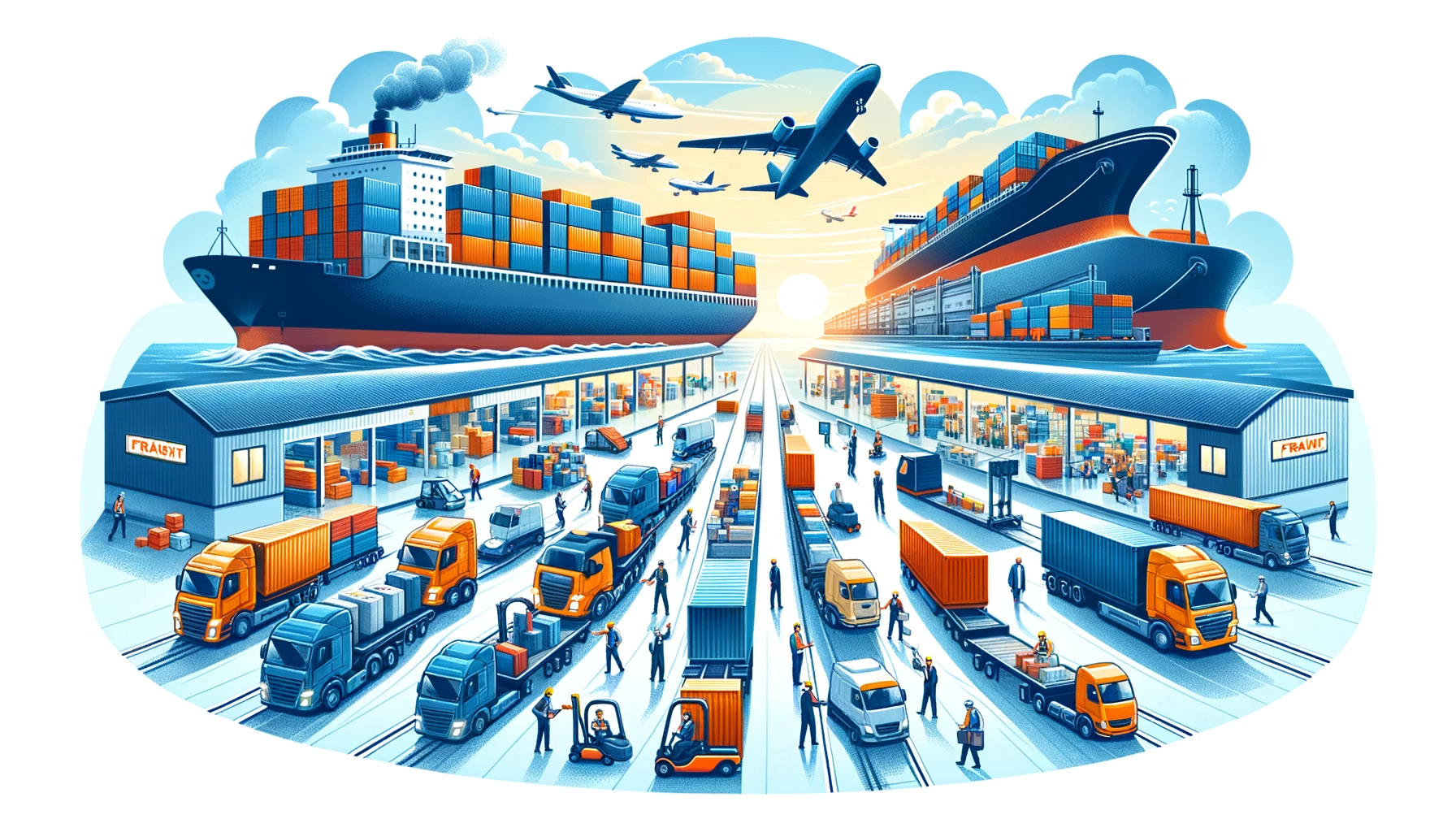Most of the transported volume of goods globally is transported through freight forwarding companies. This means that it is expected that the most knowledge about international transport and logistics is gathered in this industry.
The predominant part of shipments consists of smaller consignments, goods transported collectively by road, sea, air, or rail.
Common to these freight shipments is that the forwarder ensures the pickup of the goods from the sender and arranges transportation from there using various means to the final destination of the recipient. This collaboration between shippers and freight forwarders ensures efficient and timely global trade.
What Is Freight Forwarding
Freight forwarding is an important component in the global logistics and supply chain industry. These specialized companies play a crucial role in facilitating the seamless movement of goods worldwide. Let’s delve deeper into the world of freight forwarding.
Services Offered by Freight Forwarding Companies
Freight forwarding companies offer an extensive range of services aimed at simplifying the complex process of international shipping. They ensure that goods are transported efficiently and effectively from one location to another, regardless of the destination. These services include:
- Transportation: Freight forwarders organize the transportation of goods with regular departures to a plethora of destinations worldwide. They coordinate with various carriers, including hauliers, shipping companies, and airlines, to ensure that your shipments reach their intended destinations on time.
- Consolidation and Break-Bulk Shipments: Transports between freight forwarders and foreign agents are carried out through consolidated or break-bulk shipments. This means that smaller shipments are grouped together to optimize transportation, reducing costs and enhancing efficiency.
- Local Partner Collaboration: Freight forwarders often maintain close partnerships with agents or have their own offices in destination areas. These local partners play a critical role in ensuring the smooth reception of goods. In the case of less-than-truckload shipments, they may also oversee transshipment at local terminals.
- Customs Clearance: Navigating customs regulations can be a daunting task. Freight forwarders provide expertise in customs clearance, ensuring that your goods comply with all necessary documentation and regulations, minimizing delays and potential issues.
- Storage and Distribution: Many freight forwarders offer storage facilities and distribution services to further streamline the delivery process. This is especially useful for companies that need to store their goods temporarily before onward shipment.
- Recipient Advisory Services: Freight forwarders often provide advisory services to recipients, offering insights and guidance on the receipt of goods and any specific requirements or considerations.
- Additional Services: Beyond transportation, freight forwarders extend their offerings to include packaging, cargo labeling, transport insurance, customs documentation, and financial handling. This includes services such as Cash on Delivery (COD), Outlays, Supply Chain Financing, etc. These services serve as an extension of the transportation process and contribute to a comprehensive logistics solution.
The “Asset Light” Model
One distinctive aspect of freight forwarding is that these companies typically operate without their own transportation assets. Instead, they collaborate with a network of carriers, including hauliers, shipping companies, and airlines. This “Asset Light” approach provides greater flexibility, allowing them to adapt quickly to changing customer needs and market dynamics.
Evolution of the Freight Forwarding Market
Historically, the market for freight forwarders was highly fragmented. However, over the years, there has been a significant consolidation in the industry. This consolidation has led to the emergence of larger players with the capacity to offer a broader range of international solutions. These larger players have established partnerships throughout the logistics value chain, enabling them to engage in more extensive strategic collaborations with customers seeking complete and integrated transportation and logistics solutions.
Despite the growth of these larger players, there will always be room for smaller, specialized freight forwarders. These smaller companies often excel in cultivating close customer relationships and focusing on specific geographical areas or specialized expertise, catering to unique customer needs in the ever-evolving logistics and supply chain management world.


